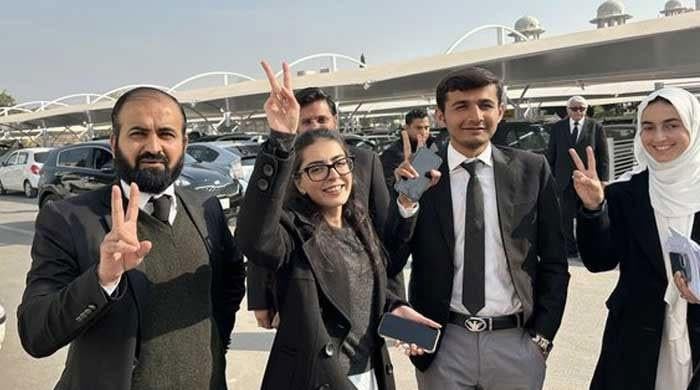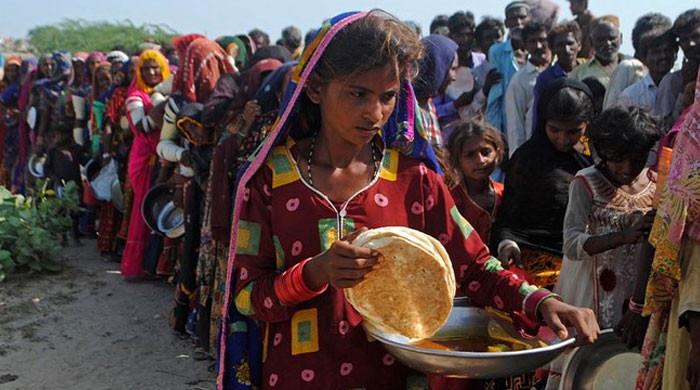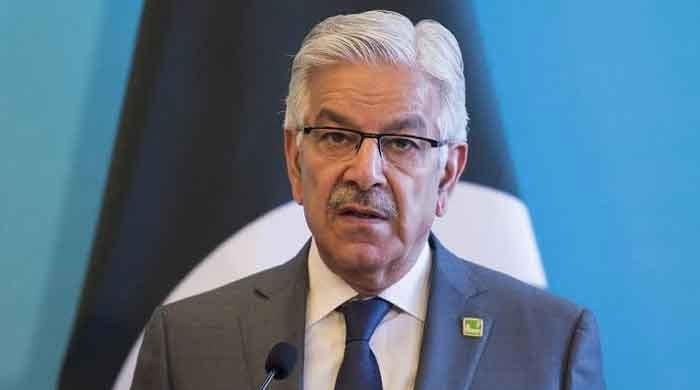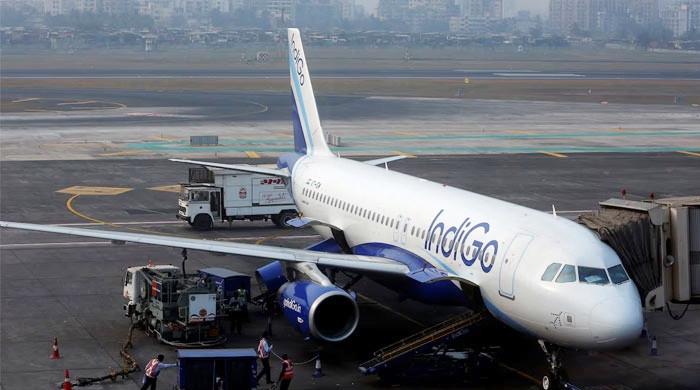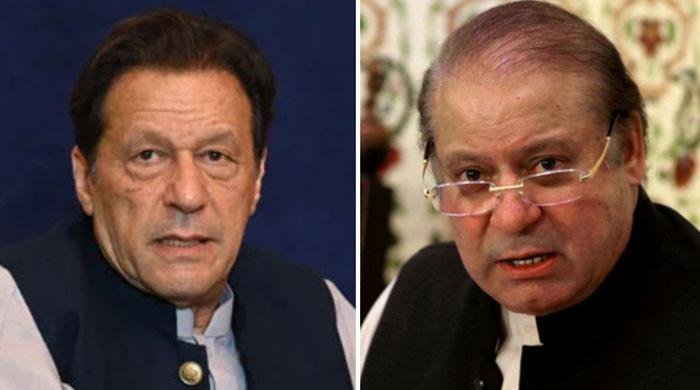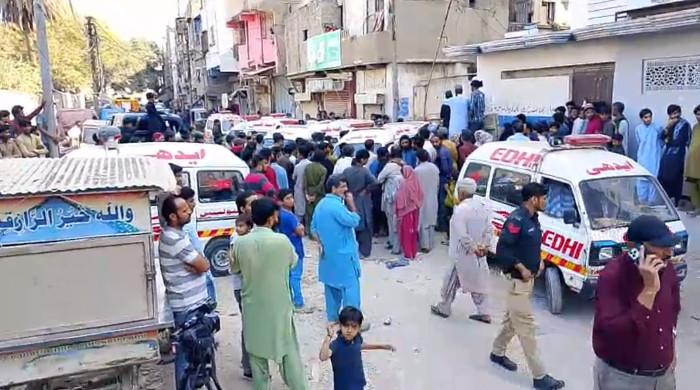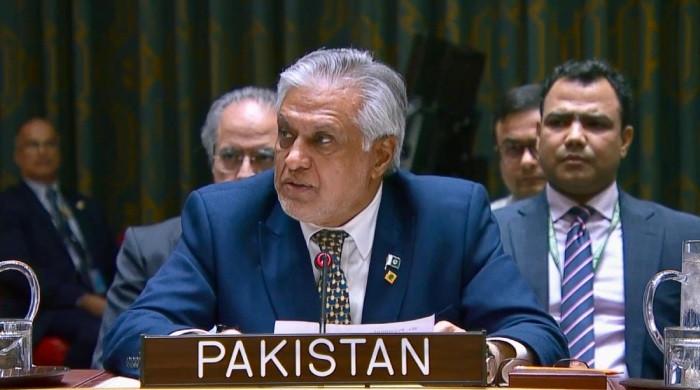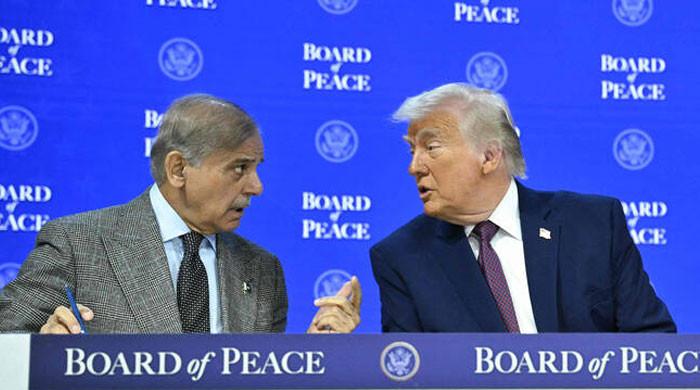PM Imran says his govt's biggest challenge is to improve state institutions
PM Imran talks about Afghan reconciliation process, Pakistan's economic challenges, and climate change during WEF 2020 speech
January 22, 2020
Prime Minister Imran Khan said Wednesday his government's biggest challenge now was to improve state institutions so that the country could be better governed, as he delivered his keynote address at the World Economic Forum (WEF).
The prime minister began his address by talking about how his government had undertaken the Billion Tree Tsunami project in Khyber Pakhtunkhwa, referring to it as "one of the most successful campaigns across the country."
PM Imran said his provincial government in 2013 had taken the initiative to involve local communities in the campaign to plant more trees."We made people understand that Pakistan was vulnerable to climate change," said the prime minister. "Women in the mountainous regions took part in planting nurseries."
The premier said one of the biggest challenges that Pakistan had faced throughout its history was getting involved in conflicts. He said the Soviet war in Afghanistan and then the Afghanistan invasion had disastrous effects on Pakistan.
"Since our government got elected, we decided Pakistan will never become part of anyone's war now," he said. PM Imran said his government had decided to resolve conflicts between other countries but never to become part of any war.
Read more: Can't have two nuclear-armed countries even thinking about conflict, says PM Imran
He said keeping in mind this policy, Islamabad had played its part in helping defuse tensions between the US and Iran as well as "easing tensions" between Iran and Saudi Arabia. PM Imran said Pakistan was playing its part to ensure peace prevailed in Afghanistan and that it was the "nearest we are to some sort of peace in Afghanistan."
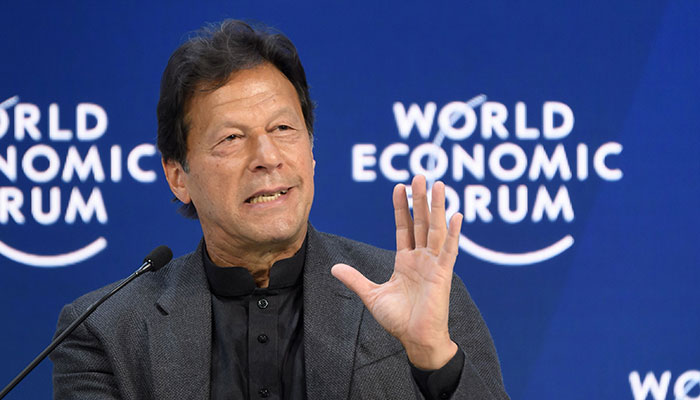
Pakistan inherited the 'worst economic crisis' in its history
The prime minister said his government inherited the biggest fiscal deficit when it came to power a year-and-a-half ago. "We only had reserves that could last a month. I have been in the public eye for 40 years but I have never faced the sort of attitude from the public that came because of the tough economic decision we had to take," he added.
Khan said Pakistan's economy had improved as the rupee, which was falling, had gained strength in the past few weeks. He said investment in the country had gone up by 200 percent, year-to-year and Pakistan had gone up 28 places in the 'Ease of Doing Business Index'.
"We are heading in the right direction, though I have to say, we have to do a lot of hard work," he said. "This year now, the focus is on increasing investment and providing employment to more people."
The prime minister said one of the biggest advantages that Pakistan had was its population. "We are a nation of 210 million people and more than 60 percent of our population is below the age of 30," he said.
PM Imran said it was unfortunate how previous governments had neglected the population and not trained them to become the country's assets. He said Pakistan had partnered with the WEF to start a programme that seeks to eliminate the skills gap in the population.
He said Pakistan's strategic location lent great importance to it. PM Imran said Pakistan was sitting on mineral resources which if extracted, could repay its entire foreign debt.
Before concluding his speech, the prime minister said that Pakistan had been gifted with a young population and a strategic location. He said his government's "biggest challenge" now was to improve state institutions which would, in turn, refine governance.




